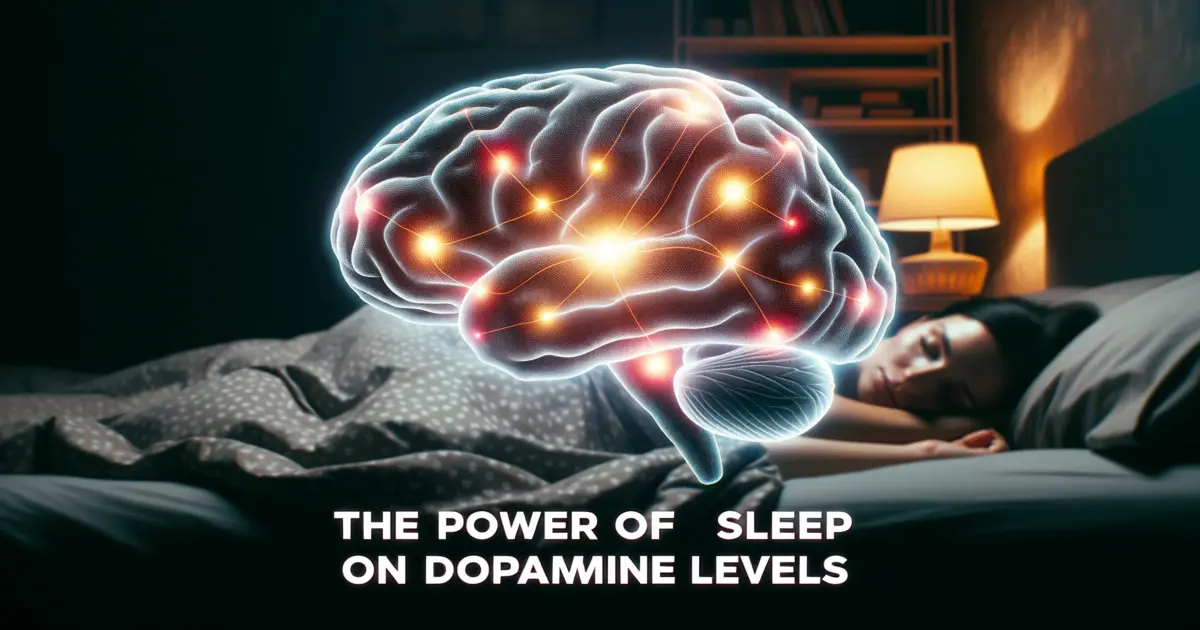Dopamine Detox: How to Stop Wasting Your Life and Regain Control

Are you tired of feeling stuck in a cycle of endless scrolling, binge-watching, and procrastination? Do you find yourself reaching for your phone every few minutes, only to realize hours have slipped away?
If you’re ready to reclaim your focus, it’s time to take back control of your life. Consider a dopamine detox a powerful method to reset your brain and overcome digital overload.
Understanding Dopamine and Its Impact on Your Life
What Is Dopamine?
Dopamine is a neurotransmitter, a chemical messenger in the brain that plays a crucial role in how we feel pleasure. It helps regulate motivation, movement, and emotional responses.
It enables us not only to see rewards but to take action to move toward them. Essentially, dopamine is often what drives us to seek out things we enjoy.
The Role of Dopamine in Motivation and Pleasure
You engage in activities that you enjoy. This includes eating your favorite food, winning a game, or scrolling through social media. Your brain releases dopamine in these moments.
These activities lead to a release of dopamine. This release reinforces the behavior, making you want to repeat it. However, in today’s digital age, we’re bombarded with instant gratification, leading to overstimulation and desensitization.
Overstimulation and Desensitization
Constant exposure to high-dopamine activities like video games, social media, and binge-watching can desensitize your brain’s dopamine receptors.
According to neuroscientist Dr. Anna Lembke, “Over time, the continued influx of dopamine leads to a decrease in the brain’s natural production of dopamine.
This decrease causes a diminished ability to feel pleasure.” This overstimulation contributes to feelings of boredom, lack of motivation, and even brain fog.
Dopamine and Digital Consumption Over Time
The Modern Epidemic of Distraction
Instant Gratification in the Digital Age
Our smartphones provide us with an endless stream of entertainment and information. With a simple swipe, we can access social media, games, and videos that keep us hooked for hours.
The phenomenon is so widespread that terms like phone addiction and digital overload have become commonplace. We’re living in an era where the pursuit of instant gratification is easier than ever.
The Consequences of Constant Stimulation
This constant bombardment doesn’t just waste time, it affects our brain’s ability to focus and find joy in simpler tasks. A study published in the Journal of Behavioral Addictions found that excessive smartphone use is linked to decreased attention spans.
It is also associated with increased impulsivity. We need effective focus improvement strategies and attention span improvement methods to combat this modern dilemma.

What Is a Dopamine Detox?
Debunking Myths About Dopamine Fasting
Contrary to popular belief, a dopamine detox, or dopamine fast, isn’t about eliminating dopamine from your brain.
Dopamine is essential for normal functioning. Instead, it’s about reducing overstimulation to reset your brain’s reward system pathways, a sort of mental reboot program.
The Purpose of a Dopamine Detox
The goal is to minimize high-dopamine activities, allowing your brain to recover and your dopamine receptors to resensitize. This process can lead to improved focus, increased motivation, and greater appreciation for simple pleasures.
In essence, it’s a lifestyle reset guide that helps you break free from addictive behaviors.
Subscribe to Create Higher Vibrations!
Get Inspiration and Practical advice straight to your inbox.
The Full Detox From Dopamine Protocol
Step 1: Preparation
Defining Your Purpose
Before embarking on a dopamine detox, it’s crucial to understand your “why.” Reflect on how overstimulation affects your life. Are you struggling with procrastination?
Do you feel disconnected from meaningful relationships? Clarifying your reasons will strengthen your commitment to this mind reset challenge.
Identifying What to Cut Out
Not all activities are equal in their dopamine impact. For a successful detox, consider eliminating the following:
Setting the Duration
A minimum of seven days is recommended to allow your brain to begin resetting its dopamine levels. This is because there’s no one-size-fits-all timeframe.
This can be part of a dopamine fasting plan or mind reset challenge. Some may choose to extend this period up to 30 days for deeper results—a dopamine reset challenge.
Step 2: Execution
Tolerating Boredom
During the detox, you may feel bored or restless. Embrace these feelings—they’re a sign that your brain is adjusting. Dr. Cameron Sepah, a clinical professor of psychiatry, emphasizes that “learning to tolerate boredom is crucial.”
This helps in breaking the cycle of compulsive behavior. This is a key aspect of self-discipline tips and focus reboot strategies.
Healthy Dopamine Alternatives
Instead of high-stimulation activities, focus on habits that provide a steady, healthy release of dopamine:
Daily Practices to Adopt
Commit to these practices every day during your detox:
Step 3: Restoration
Reintroducing Stimuli Mindfully
After completing your detox, gradually reintroduce activities, but do so with intention. Ask yourself:
If the answer is no, consider leaving it out of your life. Practicing dopamine control methods helps you maintain the progress you’ve made.
Becoming Anti-Fragile
The concept of anti-fragility, introduced by author Nassim Nicholas Taleb, suggests that we can grow stronger from challenges. By mindfully restoring certain activities, you build resilience and control. You avoid reverting to old habits. This is a key to emotional regulation tips.

Benefits of a Dopamine Detox
Improved Focus and Mental Clarity
Reducing overstimulation allows your brain to recover, leading to enhanced concentration.
A study in the Journal of Cognitive Enhancement found that mindfulness practices improve attention and reduce distraction—supporting mental clarity techniques.
Regaining Control Over Your Life
By breaking free from addictive behaviors, you reclaim your time and energy. This empowers you to pursue meaningful goals and build healthier habits—effectively implementing productivity hacks and lifestyle reset guides.
Enhanced Motivation and Productivity
With your dopamine receptors resensitized, you’ll find greater satisfaction in accomplishing tasks. Activities like studying, working, or creative pursuits become more rewarding, contributing to your overall personal growth strategies.

Tips for a Successful Dopamine Detox
Avoiding Common Pitfalls
Staying Committed to Change
Remember your purpose. Revisit your reasons for starting the detox whenever you feel tempted. Celebrate small victories along the way. Consistency is key to long-term success in this focus improvement program.
Conclusion
Starting on a dopamine detox is a powerful step. It helps stop the waste of precious time. It assists in regaining control over your life.
Reduce overstimulation. Embrace healthy habits. Mindfully restore activities. You can break free from the cycle of instant gratification—a true detox from distractions.
Take the challenge. Allow yourself to experience boredom, reflect on your values, and reconnect with what truly matters. Your future self will thank you.
By implementing this dopamine detox protocol, you’re not just hitting the reset button. You’re paving the way for a more focused, fulfilling life. So why wait? Start your journey toward mental clarity and improved focus today.








